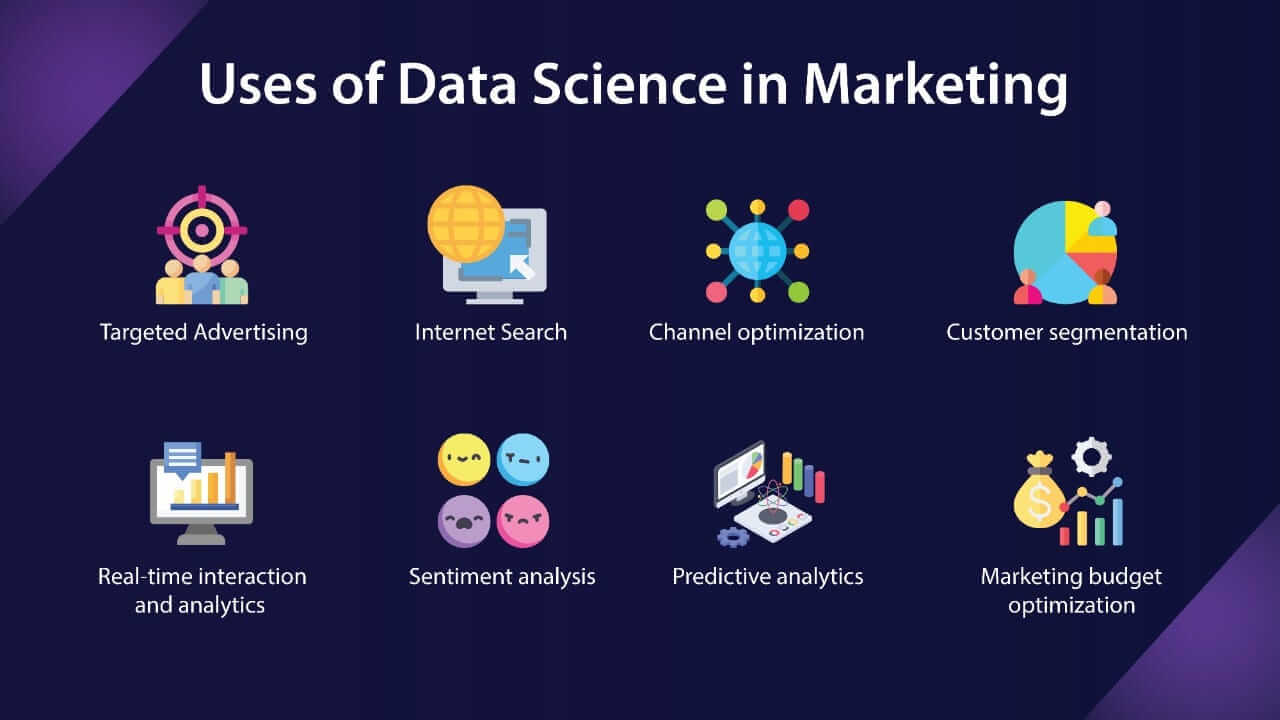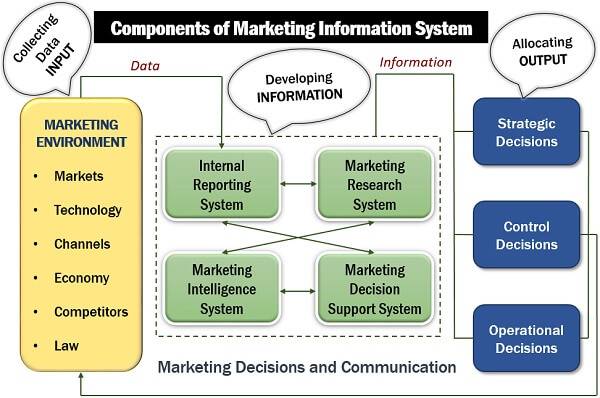Data has become a critical element in driving sales and marketing strategies in today’s fast-paced business world. With the rise of digitalization, businesses have access to vast amounts of data that can be used to gain insights into consumer behavior, market trends, and competition. Through leveraging data analytics and artificial intelligence tools, sales and marketing teams are better able to target their audiences with highly personalized messages that resonate with their specific needs and interests.
In this blog post, we will explore the importance of data in sales and marketing and the various ways it can be used to foster growth and success for businesses of all sizes.
Understanding Database Marketing and Data-driven Marketing
The first section of this blog delves into the fundamental concept of database marketing and data-driven marketing. With the vast amount of information available, these methods have become essential tools for companies to reach their targeted audience. The following sections explore the different methods of collecting and using data, analyzing and applying big data, and making data-driven decisions.
All these sections build on the concept of using data to improve marketing and sales strategies. It is clear that data is now the backbone of any successful marketing campaign. Companies can create more targeted advertisements, improve customer service, and strengthen customer relationships with a better understanding of how to use and analyze data.
Ultimately, understanding database marketing and data-driven marketing are critical in today’s highly competitive market.
Data Collection in Sales and Marketing: Methods and Importance
Data collection is a critical aspect of sales and marketing. In order to create successful marketing campaigns, companies must gather data and insights about their customers or potential customers. From accounting reports to customer invoices, the data collected can help understand consumers’ purchasing habits and help create targeted advertising. Primary marketing data can be gathered through observation, experience, or simulation modeling, and larger companies often collect this information. The advantages of big data collected on the internet daily are immense, including social media and online search engines.
Data-driven decision-making can help identify the best sales representatives and improve overall sales performance. A strong database is crucial in customer relationship management in e-marketing. By understanding the importance and methods of data collection, companies can improve their marketing strategies and effectively meet the needs of their target market.

Targeted Advertising: Using Data Science in E-commerce
Targeted advertising is a critical application of data science in e-commerce. By using insights derived from data analytics, businesses can create personalized promotional campaigns that are more likely to resonate with individual customers. This approach not only boosts sales but also enhances customer satisfaction and loyalty. By leveraging data science, companies can analyze customer behavior and preferences to deliver targeted ads, emails, and promotions that are customized to specific users. This approach can help businesses build stronger relationships with their customers, which is crucial for long-term success.
With the right tools and technologies, businesses can use targeted advertising to reach the right audience at the right time and message. The result is a more effective marketing strategy that drives growth and improves the bottom line.

Importance of Analyzing Big Data in Supporting Marketing Information System
With the rise of big data, analyzing large datasets is becoming increasingly important in supporting the marketing information system. This is an important aspect of data-driven decision-making, which can lead to improved business development and increased sales. By mining and analyzing large amounts of customer data from social networks, companies can gain a deeper understanding of consumer behavior, which can help to shape marketing strategies and product development.
Furthermore, analyzing big data can help companies improve their relationships with customers and create targeted and accurate content.
Overall, the importance of analyzing big data should be considered, as it can significantly improve sales and marketing strategies.
Sales and Marketing: Capturing, Storing, and Using Different Types of Data
In sales and marketing, capturing, storing, and effectively using different types of data is an essential component of success. The information gathered can serve as a tool for businesses to better understand their customer’s preferences and behaviors and tailor their marketing strategies accordingly. With the help of data management tools, businesses can ensure that their data is organized and easily accessible to all team members. By analyzing big data, marketing professionals can determine their campaigns’ effectiveness, identify improvement areas, and drive sales growth.
Additionally, understanding the different types of data, such as sales data and customer engagement data, can enable marketers to target their efforts towards recurring high-value customers, ultimately improving their bottom line. All of these factors contribute to creating a customer-driven marketing journey where data-driven decision-making can optimize results and improve overall customer satisfaction.
Marketing Analytics: The Benefits of Data-driven Decision Making
Incorporating marketing analytics into decision making processes can hugely benefit a company’s growth. As discussed earlier in this blog, marketing analytics can help marketers identify which strategies are working and which ones need to be revisited. The collected and analyzed data allows marketers to make better decisions about optimizing campaigns, improving customer experience, and increasing sales.
Democratizing the analytics process empowers all team members, regardless of their technical skills, to access it and carry out informed decisions. With data-driven decision-making, a company gains greater control over the direction of its business and the quality of its decisions. Plus, the use of advanced analytics can provide even more information relatively instantaneously. If the guidance is clear, a company can make more confident, strategic decisions and therefore promote its growth.
Overall, these benefits are why implementing a data collection, analysis, and visualization process is worth the effort in sales and marketing.
The Customer-driven Marketing Journey: The 4 Stages
The customer journey is an essential aspect of sales and marketing, as it defines the path a potential customer takes to become a loyal advocate of the brand. The customer-driven marketing journey typically has four stages: awareness, consideration, purchase, and loyalty. In the awareness stage, the target audience becomes aware of the brand, its offerings, and its unique value proposition. In the consideration stage, they start to evaluate the brand’s offerings and compare them with those of its competitors. In the purchase stage, they make a decision to purchase the product or service.
And finally, in the loyalty stage, they become loyal customers and advocates of the brand. Analyzing customer data at each stage of the journey allows marketers to develop targeted strategies that enhance the customer experience, increase customer retention, and ultimately drive sales growth. By capturing, storing, and using different types of data, businesses can improve their marketing analytics and make data-driven decisions that benefit their customers and promote business success.
Data Analytics and Improved Content Creation and Customer Service
As previously discussed, data analytics is crucial in all aspects of sales and marketing, including content creation and customer service. Companies can publish targeted content that resonates with their audience by analyzing customer behaviors and trends, improving its accuracy and relevance.
Moreover, data analytics helps improve customer service by providing insight into their preferences and needs, allowing companies to tailor their support and services accordingly. Doing so increases customer satisfaction, leading to repeat business and positive reviews.
This highlights the importance of a strong database and customer relationship management in e-marketing, as they enable effective data collection and analysis. Data analytics plays a vital role in improving content creation and customer service, driving business growth and success.
Customer Relationship Management in E-Marketing: The Importance of a Strong Database
In today’s digital age, e-marketing has become an essential tool for businesses of all sizes. As companies increasingly rely on the Internet to drive sales, customer relationship management (CRM) has become paramount. A strong database is vital for effective CRM, as it enables businesses to store, manage, and analyze customer data. By capturing customer interactions and transactions, a business can tailor its marketing campaigns to meet their customers’ specific needs.
This approach improves customer engagement, leads to more sales, and provides a better customer experience. A strong database is essential in creating a successful e-marketing strategy that keeps businesses ahead of the competition.
By leveraging data to enhance customer service, create targeted advertising, and improve content creation, businesses can take advantage of the full potential of data in their CRM systems.
The Crucial Role of Data in Sales and Marketing.
In conclusion, the role of data in sales and marketing must be considered. The previous sections have highlighted the importance of data collection, analysis, and utilization in various aspects of sales and marketing. From lead generation to customer relationship management, data is crucial in improving the accuracy of targeting, increasing brand engagement, and enhancing customer experience.
Organizations that leverage data to inform their sales and marketing strategies have a competitive edge over those that do not. By capturing and storing different types of data, analyzing big data, and utilizing marketing analytics, businesses can make data-driven decisions that lead to increased revenue and customer satisfaction.
Therefore, it is imperative for businesses to prioritize data collection and analysis to remain competitive in today’s data-driven marketplace.
Frequently Asked Questions – Data-Driven Sales and Marketing
Why is data important in sales and marketing?
Data is important in sales and marketing because it provides insights into customer behavior, preferences, and needs. By analyzing data, businesses can identify opportunities for growth, improve their marketing strategies, and optimize their sales processes. Data also helps businesses to measure and track their performance, make informed decisions, and stay ahead of the competition.
What is the role of data in marketing?
The role of data in marketing is to provide insights into customer behavior and preferences, help businesses to create targeted and personalized campaigns, and measure the effectiveness of marketing efforts. Data can also be used to optimize marketing strategies, identify new opportunities for growth, and improve the overall customer experience.
Why is data so important in sales?
Data is important in sales because it helps businesses to understand customer needs and preferences, identify new sales opportunities, and optimize their sales processes. By analyzing data, businesses can also improve their forecasting accuracy, measure and track their sales performance, and make informed decisions about resource allocation and strategy.
What data is important in sales?
The data that is important in sales includes customer demographic and behavioral data, sales performance metrics, lead and opportunity data, and customer feedback and satisfaction metrics. Other important data points can include market trends, competitor analysis, and economic indicators.
How is data used for sales and marketing?
Data is used for sales and marketing by providing insights into customer behavior and preferences, identifying new sales opportunities, and optimizing marketing strategies. By analyzing data, businesses can also measure and track their performance, make informed decisions, and improve the overall customer experience.
Why is data so important in business?
Data is important in business because it provides insights into customer behavior and preferences, helps businesses to identify opportunities for growth and optimization, and supports informed decision-making. By analyzing data, businesses can improve their operations, increase efficiency and productivity, and gain a competitive advantage in their industry.



